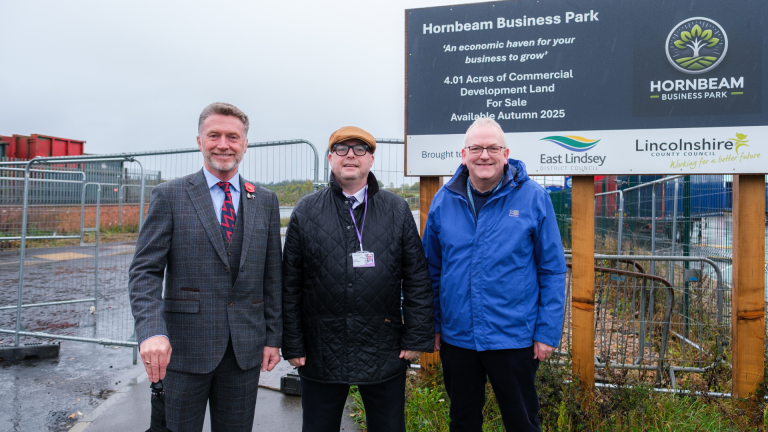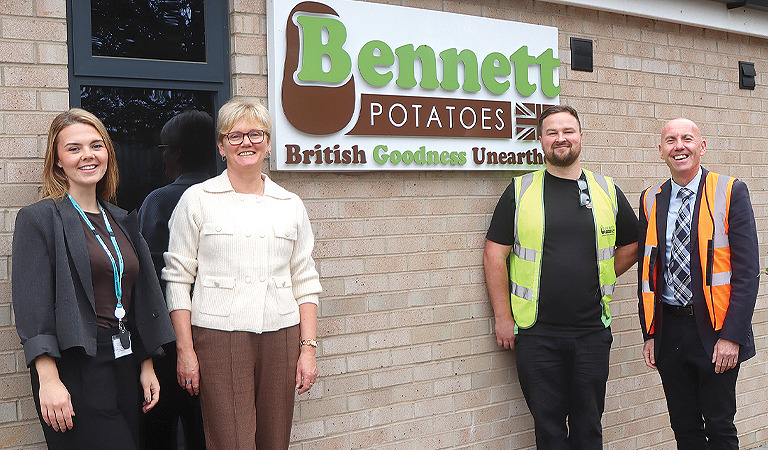The Derbyshire Brain Game returned to Pride Park Stadium on Thursday 9th October for another memorable evening, raising over £60,000 in support of Marie Curie. Almost 300 guests gathered for the glamorous black-tie quiz night, helping to fund expert care and support for people living with terminal illness and their families.
Now firmly established as a highlight in the region’s charity calendar, The Derbyshire Brain Game continues to blend high-energy entertainment with meaningful fundraising. Held at the home of Derby County Football Club, this year’s event brought together business leaders, community figures, and long-time supporters for an evening of fine dining, fierce competition, and moving testimonies from those impacted by Marie Curie’s vital work.
Matthew Nickson, Marie Curie’s Community Fundraiser for Derbyshire, said:
“The continued generosity and enthusiasm of everyone who attends The Derbyshire Brain Game is truly overwhelming. Every pound raised helps ensure no one faces end of life alone. We are incredibly grateful to all who contribute, especially our sponsors, donors, and volunteers. This year we have raised over £60,000, which will fund approximately 2,640 hours of specialist nursing care. With this year’s total, the event has now raised over £500,000 since its inception in 2012.”
All funds raised go directly to supporting Marie Curie’s range of services, including in-home nursing care, hospices, bereavement counselling, and a free information and support line, all of which provide comfort, dignity, and expert guidance to those navigating the challenges of terminal illness.
Dean Nelson, member of The Derbyshire Brain Game Committee, said:
“I’d like to extend my sincere thanks to our headline sponsors, MasterMover, Work Wallet, and my own firm, PKF Smith Cooper, for their generous support. The continued loyalty of our regular attendees, volunteers, and sponsors is absolutely vital to the success and longevity of this event.
A special thanks must also go to representatives of the Marie Curie Nursing Service and to Coreen Astle, Head of Operations in the Midlands, whose powerful and emotive speech on the night captured the real-life impact of the charity’s work and puts into focus the reason we gather for this event, year on year.
I also want to acknowledge those who helped bring the evening to life, from our auctioneer Steve Salloway, who led a thrilling auction featuring prizes kindly donated by local businesses, to the many organisations who contributed raffle items. Your generosity makes a real difference.”
The committee also recognised the contributions of Adam Buss, who compered the evening with warmth and professionalism, supported behind the scenes by long-standing quiz expert Kirstin Walmsley, who manages the technical delivery of the quiz every year. Appreciation was extended to Co-op for their generous provision of table centrepieces, and to Bowmer and Kirkland for providing all the printed event materials.
The Marie Curie Fundraising Committee for Derbyshire also played a key role in the success of the evening as dedicated ‘Markers’, while Ben Clarkson captured the event through his excellent photography. It was noted that the list of thanks could continue for what seems like an eternity.
While the evening centres around fundraising, the quiz remains highly competitive. After seven tough rounds, Smith Partnership claimed victory and took home the winners’ trophy, a unique design created by Jowita, a talented Derby College student. The trophy, featuring Marie Curie’s iconic branding, was selected as part of an annual student design project led by lecturer Pete Gardner. This collaboration not only highlights the college’s ongoing support but also gives students a valuable opportunity to work on a meaningful, real-world project and of course, the winners take home an actual trophy.
Due to the event’s ongoing success, The Derbyshire Brain Game will return in 2026, with the date already confirmed for Thursday 8th October, once again at Pride Park Stadium. Many tables have already been reserved by returning supporters, and the organising committee is looking forward to welcoming new participants next year.
Each year, the event attracts hundreds of professionals for an unforgettable night of entertainment, connection, and charitable impact. It offers businesses a unique opportunity to engage clients, reward staff, and network, all while supporting a life-changing cause.
The Derbyshire Brain Game is organised entirely by a volunteer committee made up of local business professionals from companies such as PKF Smith Cooper, Work Wallet, Bowmer and Kirkland, The Red Olive Catering Co., Co-op Group, and Clowes Developments, along with passionate individuals dedicated to supporting Marie Curie’s mission.
For more information about The Derbyshire Brain Game 2026, taking place on Thursday, 8th October 2026 at Pride Park Stadium, please contact the organising team at derbyshirebraingame@gmail.com.












